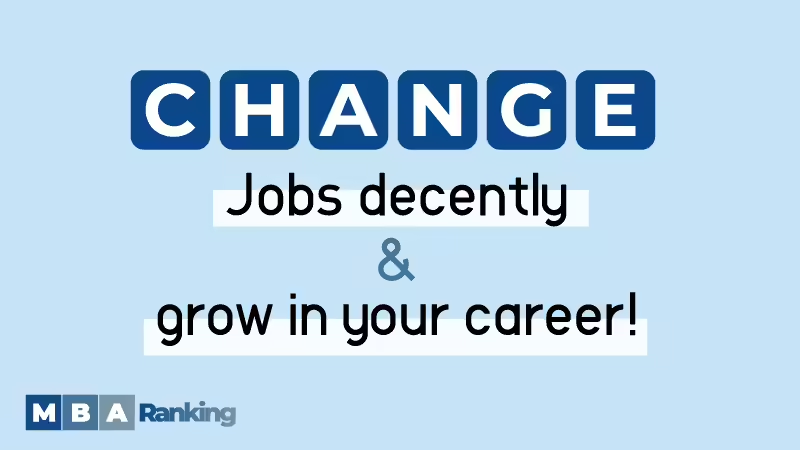COVID-19 Threatens Gender Equality in MBAs
With the increase of female applicants for MBAs but the acceptance rate of female applicants decreasing, it is raising worries of diminishing gender parity
Gender Equality has always been an issue in the United States. Since COVID-19 led to a severe recession, business schools have received increased applications from executives who have plenty of time due to the lack of business during the pandemic.
It is reported that applications for MBAs from women decreased when compared to that from men, and it has raised concerns that the pandemic is making progress on gender balance at business schools. Due to this proven statistic, universities have been criticized for rolling back years of progress towards gender equality in MBA programs.
According to Forté Foundation, a nonprofit focused on gender equality in business and education, gender equality for MBAs has already taken a huge step back. Forté noted that although demand for business management qualifications has grown, the percentage of women enrolled in MBAs at its member schools was the same as that of 2019.
In 2020, half of the member schools had 40 percent of women enrolled in their MBA programs. This proportion of women’s enrolment is comparable to that of in 2001 when the organization was established. At the inauguration of the organization, the proportion of women at business schools in the U.S. was fewer than 28 percent.

Elissa Sangster, CEO of Forté, says that women are generally more reluctant than men to invest in an MBA, and their financial commitment to enroll in an MBA can be more challenging. Sangster adds, “They face the double whammy of typically earning less than men and also holding more student loan debt. Women were disproportionately impacted by the pandemic, so some of these obstacles were exacerbated.”
Sangster emphasizes how important it is to maintain the increased women’s enrollment because of the struggles faced by women in the pandemic recession such as increased domestic burden and significantly high job losses. Sangster also suggests that an MBA degree can help women break down barriers that traditionally can stand in their way, mentioning that only six percent of S&P 500 CEOs are women but nearly 40 percent of them hold an MBA.
“A great deal of research over many years has clearly shown that having a more diverse leadership team contributes to better financial performance, which is needed more than ever now,” Sangster adds.
Some women are reconsidering applying to business school
According to the Graduate Management Admission Council, the exam board for the GMAT exam, the pandemic had an immediate effect on women’s decision of applying to MBAs. In April 2020, more than half of women were worried about the pandemic’s impact on their pursuit of a business MA degree whereas only 37 percent of men did so. Only a month before, at the onset of the pandemic, the proportion between women and men did not show any significant difference.
This raises concerns that it can cause a ripple effect among the prospective applicants. Paula Amorim, MBA admissions director for IESE Business School in Spain, says. “Applicants tend to be naturally drawn towards schools where they can see themselves represented in the class. If the numbers of women studying at business schools deaccelerate, this might affect the motivation of future applicants, causing us to lose momentum in our efforts towards gender balance.”
According to Amorim, it is too early to predict the enrolments for the following year, but the school expects it to be more difficult to recruit women this year. For IESE’s current course, which opened in the autumn of 2020, the proportion of women was the same as the preceding year, with 32 percent of enrolled women.
Amorim agrees that the COVID-19 caused the decrease in women’s enrollment in MBA programs, saying, “Women, in general, maybe more stable on their decisions, making them less anti-cyclical than men”. Despite the increased interest in MBA programs, demand for women is after all being out weighted by stronger demand from men.
Amorim underlines the importance of the school’s role in maintaining the proportion of women and women enrolling in MBA courses. This action can be the targeted scholarships to incentivize enrollment of women or the focused initiatives to recruit women that were not previously considering an MBA. Amorim mentions, for example, “by getting alumnae to inspire women in their network and open their eyes to all the advantages of getting a graduate degree.”
At Georgetown University’s McDonough School of Business in Washington DC, the number of women in the MBA has also remained the same during the pandemic, with 32 percent.
Shelly Heinrich, associate dean for MBA admissions at Georgetown, also highlights the role of schools. Heinrich suggests that the schools need to, for example, dispel the myths of the stereotyped business school candidate. “The career options that come out of an MBA are so much more diverse than just typical male-dominated industries like finance and technology. MBAs also pursue jobs in nonprofit and social impact, consumer products, luxury goods, media, and entertainment.”

Another myth about business school that should be debunked is that students cannot pursue a degree and family plan at the same time. “It is possible,” says Heinrich. “I had a four-year-old when I entered my Executive MBA program and was still able to balance work, life, and family. You certainly need a support network to do it. But women need role models.”
Virginie Fougea, global director of admissions, financial aid, and scholarships at INSEAD, stays optimistic about the numbers of women at business schools in the following years. Despite a slight decrease in women’s MBA enrollment this year, Fougea found that more women are taking the GMAT and that the GRE is also showing strong results with close to half of exam takers being women.
“Looking at the current applicant pool, we see a 6 percent increase from female applicants. We do not know how many women will be admitted yet, but we are very pleased with this current trend”.
Read more: MBA Students wanting to become a Pot Entrepreneur



















